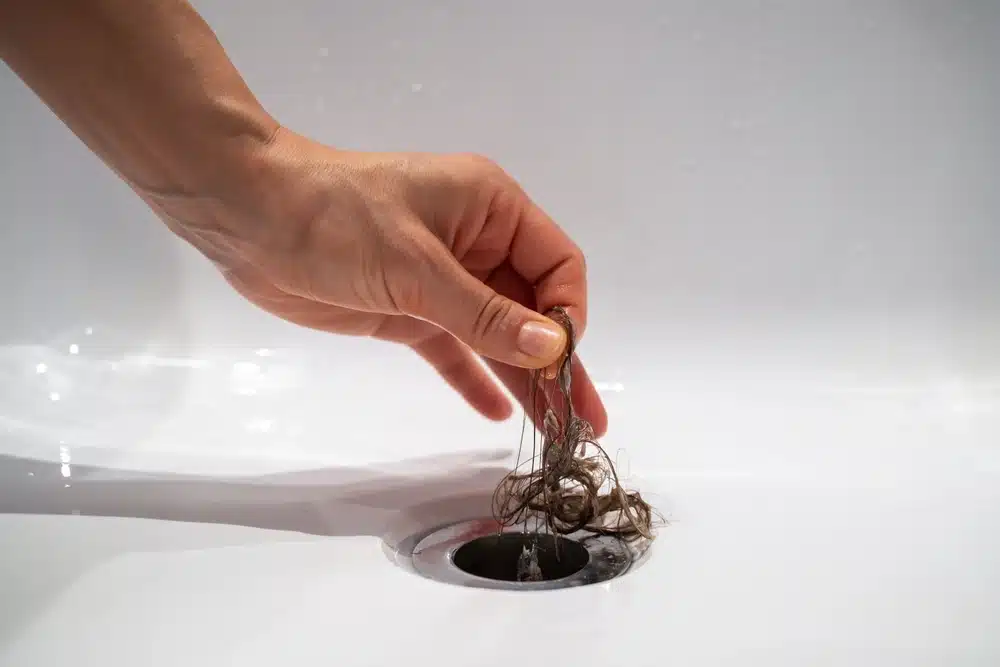Hair loss is something that can happen to both men and women at any time of their life. There are a number of different causes of hair loss including; stress, ageing, hormones, and some lifestyle factors.
Today we’re looking into a list of different drugs that can actually cause hair loss.
Hair loss and medication
Hair loss can happen for several, and one common side effect of a large number of prescription drugs is hair loss. Some medication can be ‘toxic’ to the hair follicles and this can alter the hair growth cycle, which over time can lead to an abnormal growth cycle and cause hair to shed faster than it can grow – causing hair loss.
Medication can be the cause of the problem for some, however, it is important to remember that in most cases, medication will only cause temporary hair loss and after discussing it with your GP a change in dosage or a change to the medication can cause the hair loss to stop.
If you feel a medication you are taking is causing hair loss you can firstly ask your pharmacist for a complete list of the manufactures warning to see if hair loss is listed as a possible side effect and the next step would be visiting your GP to discuss your medication and how you could stop hair loss.
What medications cause hair loss?
There are a huge number of prescription medications that can cause hair loss as a side effect. It is important to remember that not every one of the following medications will cause hair loss for every person, however, it is a possibility.
Anticoagulants (blood thinners): Blood thinning medication can cause hair loss known as telogen effluvium, this type of hair loss can affect the entire scalp rather than just a specific area. For most, hair loss will begin around 12 weeks after taking the medication.
Gout medications: Allopurinol, a medication used to treat gout can also lead to telogen effluvium.
These medications include; Lopurin and Zyloprim
Beta blockers: Beta blockers are medication that helps to reduce the workload of the heart and work to lower blood pressure. For some beta blockers can cause telogen effluvium.
These medications include; Atenolol (Tenormin), Metoprolol (Lopressor), Nadolol (Corgord), Propranolol (Inderal, Inderal LA), Timolol (Blocadren)
Angiotensin-Converting Enzyme Inhibitors: Commonly known as ACE inhibitors, Angiotensin-Converting Enzyme Inhibitors are another type of blood pressure medication can lead to telogen effluvium.
These medications include; Captopril (Capoten), Lisinopril (Zestril, Prinivil), Enalapril (Vasotec)
Male hormones: Male hormones can also cause hair loss, men who take testosterone or anabolic steroids can experience male pattern balding. Unlike most hair loss caused by medication, male pattern baldness is permeant and at current, there is no cure for it.
Female hormones: For women, taking female hormones can cause hair loss. Birth control and hormone replacement therapy can lead to hormonal changes in the body which for some can lead to hair loss.
Antidepressants: Some medications that are used to treat depression and anxiety can cause telogen effluvium.
These medications include; Amitriptyline (Elavil, Endep), Amoxapine (Asendin), Clomipramine (Anafranil), Desipramine (Norpramin, Pertofrane), Doxepin (Adapin, Sinequan), Fluoxetine hydrochloride (Prozac), Haloperidol (Haldol), Imipramine (Janimine, Tofranil, Tofranil PM), Nortriptyline (Pamelor, Aventyl), Paroxetine (Paxil), Protriptyline hydrochloride (Vivactil), Sertraline hydrochloride (Zoloft), Trimipramine (Surmontil).
Anticonvulsants: Often known as anti-seizure medications, anticonvulsants can lead to hair loss.
These medications include: trimethadione (Tridione) and valproic acid (Depakote).
Vitamine A: If taken in large doses, vitamin A can lead to telogen effluvium. The acne medication isotretinoin (Accutane) is derived from vitamin A.
What should I do about my hair loss?
Although the above list includes medications that cause hair loss, if you are suffering from hair loss yourself it is important to remember that it could be due to a different cause. It is important to visit your GP before deciding to make any changes to your medication, and if a change to your medication does not stop hair loss you could visit a hair loss specialist to find out the cause of your hair loss as well as discussing hair loss treatments.


